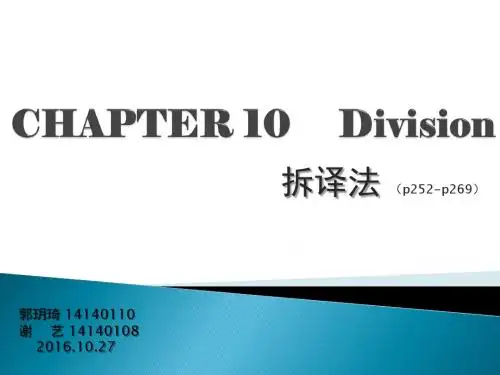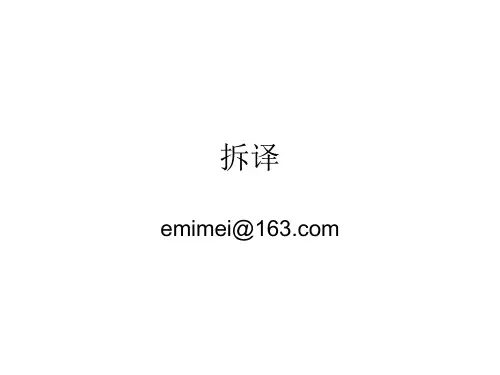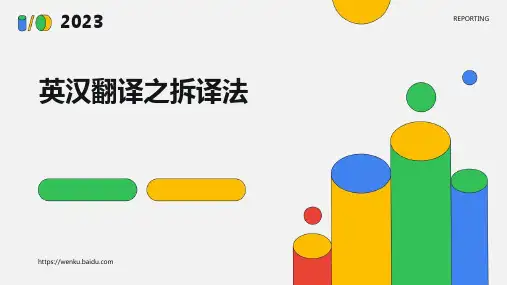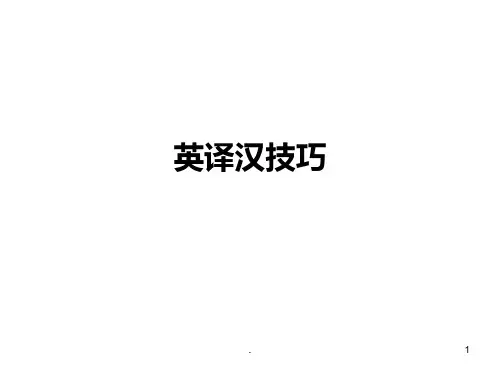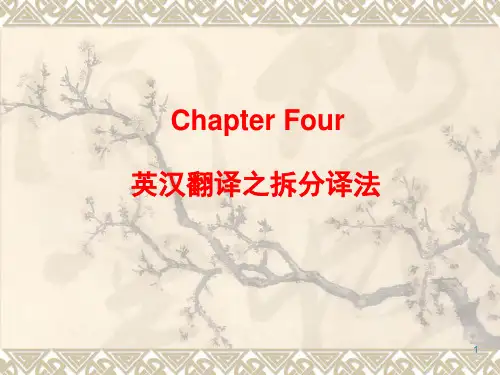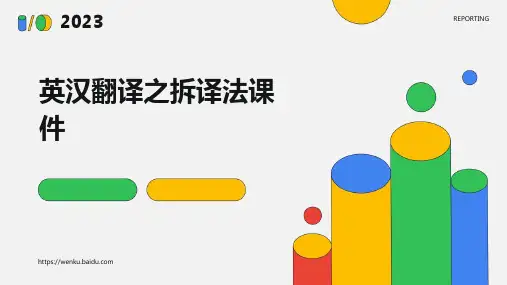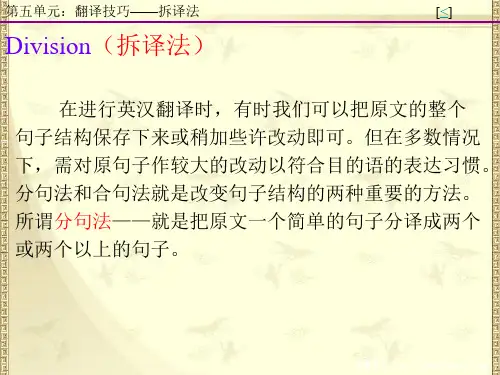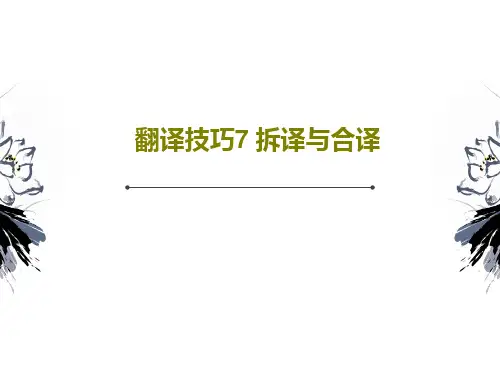四.拆动词
The sailors swarmed into a laughing , cheering ring around the two men. 拆译前:水兵们蜂拥成又欢又笑的圆圈,把这两个人围了起来。 拆译后:水兵们欢欢笑笑,蜂拥而至,把这两个人围了起来。 The year 1983 began—and ended—with an unusual oil crisis : fears that the price of crude oil would not go up but down. 1983年新年伊始,就存在着一种异乎寻常的石油危机:人们担心原油 价格要下降,而不是上扬。这一年结束的时 候,情况依然如故。 句中ended作并列谓语。意为“新年开始和结束时,始终存在着一种 异乎寻常的石油危机:……”,此处将动词ended拆译为一个句子,用 “情况依然如故”代替前面讲过的危机,则句子更加通顺。
1.Well, what if I did? I've as good a right to take a taxi as anyone else. 那又怎么样呢?的士别人能坐,咱也能坐。 2.How can you be such a foolish ignorant girl as to think you could afford to pay Mr. Higgins? 你这姑娘怎么那么不懂事?你能出得起钱请息金斯先生吗?
三.拆分词短语 He was dressed , sitting by the fire , looking a very sick and miserable boy of nine years. 他已经穿好衣服,坐在火炉旁。这个9岁的男孩看上去病 得很厉害,一副可怜巴巴的模样。 (现在分词短语〈状语成分〉译成一个句子)
